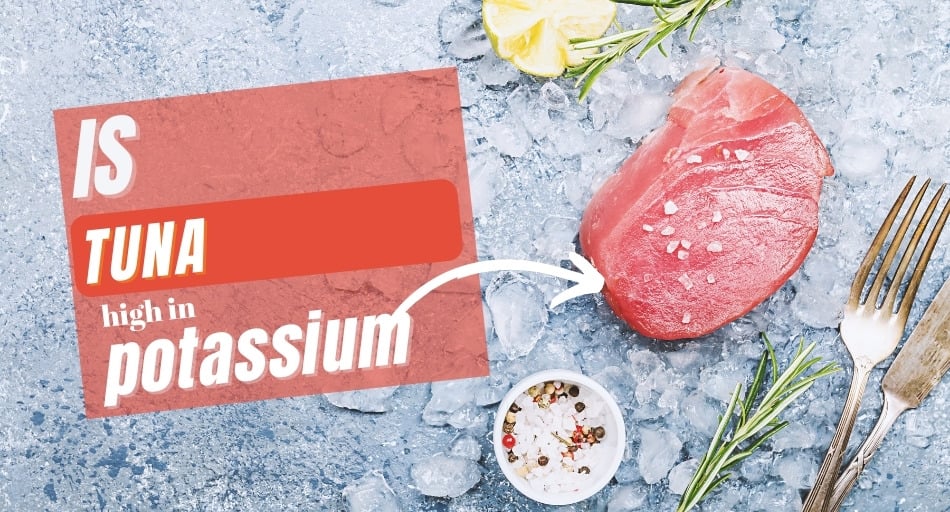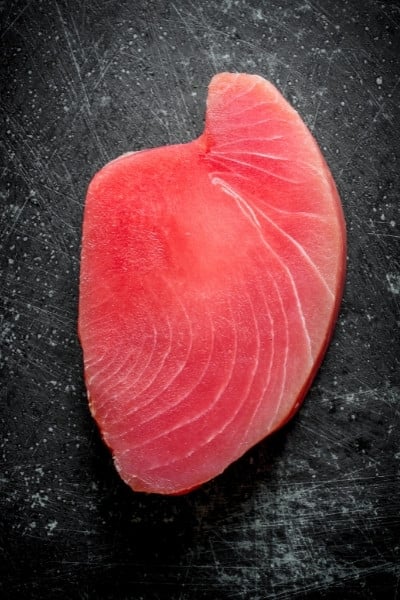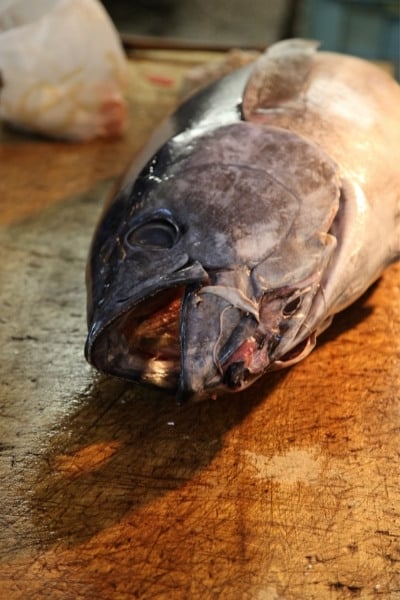Tuna is a saltwater fish that belongs to the Mackerel family. It's an oily fish that is high in protein and omega-3 fatty acids and can be eaten fresh or canned and is a popular choice for sandwiches, salads, and sushi. But is tuna also high in potassium?

Table of Contents
Is Tuna High in Potassium?
Tuna fish is considered to be high in potassium. When compared with other fish, tuna has a higher level of potassium. Potassium is an essential mineral that is responsible for a number of important functions in the body, including regulating blood pressure and heart rate.
Other fish that has a high level of potassium are salmon, halibut, and cod.
If you're sensitive to potassium, you should eat fish that are lower in potassium like tilapia, shrimp, and catfish.
Can You Check Your Potassium Level at Home?
How Much Potassium is in a Serving of Tuna
There is approximately 176 mg of potassium in a 3.5-ounce serving of canned tuna. The daily value of a healthy adult is set at 4,700 mg. Therefore, eating too much tuna can result in an excessive intake of potassium.

The amount of potassium will also vary depending on the brand of tuna. For example, chunk light tuna has around 170 mg of potassium per 3.5-ounce serving, while albacore has 200 mg.
The potassium content can vary depending on the type of habitat the tuna lives in, as well as the diet of the fish. For example, a tuna in very salty water will have more potassium than a tuna in lower salty water.
Also, canned tuna usually has more potassium than tuna that is sold fresh. This is because potassium is a preservative and it is used to can tuna.
Health Benefits of Tuna
Tuma fish has a very high amount of potassium
Potassium is an important mineral that plays a role in many bodily functions. It helps regulate blood pressure and heart rate and also helps muscles contract and nerves send messages.
A diet that includes plenty of potassium-rich foods may help protect against heart disease and stroke. A person who does not consume enough potassium may be at risk for high blood pressure, kidney stones, and bone loss.
Tuna is a good source of protein
Protein is an important nutrient that helps build and repair muscles and tissues. It also plays a role in immune system function.

A 3-ounce serving of tuna provides about 20 grams of protein, which is 40% of the daily value for protein. Protein is also essential for children and pregnant women, as it helps with growth and development.
High in Omega-3
Omega-3 fatty acids found in this fish are important nutrients that have many health benefits. They may help protect against heart disease, stroke, and diabetes, and may also improve mental health and cognitive function.
Tuna is a particularly good source of omega-3 fatty acids, providing about 2 grams per 3-ounce serving.
Tuna is also a good source of vitamin B12
Vitamin B12 is a nutrient that is essential for healthy brain function and red blood cell production. A 3-ounce serving of tuna provides about 25% of the daily value for vitamin B12.
Vitamin B12 is also important for pregnant women and people who do not eat meat or poultry.
Tuna is a low-calorie, nutrient-rich food
A 3-ounce serving of this fish contains about 120 calories but provides a variety of important nutrients. Consuming food that has high nutritional value while being low in calories can help with weight management.
Tuna is also a good source of selenium

Selenium is a mineral that plays a role in thyroid function and the immune system. It is also an antioxidant, which means that it helps protect cells from damage.
A 3-ounce serving of tuna provides about 55% of the daily value for selenium. Selenium is also good for mental growth and development. It prevents mental declination and cures Alzheimer's. It is also believed to reduce asthma symptoms.
Tuna contains Vitamin D
Vitamin D in tuna is important in calcium absorption. Without enough vitamin D, calcium cannot be absorbed properly, leading to a deficiency.
Vitamin D is also important for bone health and preventing osteoporosis. A 3-ounce serving of tuna provides about 25% of the daily value for vitamin D. The antioxidation effect of vitamin D is also helpful to the skin and other body cells. It can prevent skin cancer and photoaging.
Tuna is a good source of phosphorus
Phosphorus is a mineral that helps build strong bones and teeth. It is also involved in energy production and nerve function.
A 3-ounce serving of tuna provides about 30% of the daily value for phosphorus. Phosphorus is also essential in children's growth and development.

The B vitamins in tuna help the body to convert food into energy. They are also important for healthy skin, hair, and nails. A 3-ounce serving of tuna provides about 20% of the daily value for all of the B vitamins.
Mercury in Tuna
Some canned tunas, such as skipjack, are lower in mercury than other types of tuna. Mercury is a metal that can be harmful to the body if consumed in large amounts. Pregnant women and young children should avoid eating any fish that contains high levels of mercury.
Can a Person With Kidney Disease Eat Tuna?
Some people with kidney disease need to limit the amount of potassium they eat. Tuna is a good source of potassium, so people with kidney disease should speak with a doctor or dietitian before eating tuna.
People with kidney disease should also avoid eating any fish that contains high levels of mercury.
Is There a Way to Reduce the Amount of Potassium in Tuna?
Yes, there is a way to reduce the amount of potassium in tuna. Soaking canned tuna in water for about 30 minutes before eating will reduce the amount of potassium by about 50%.
Conclusion
Tuna is a good source of potassium and other minerals, but some people with kidney disease need to limit the amount of it they consume.
There are ways to reduce the amount of potassium in tuna including soaking canned tunas before consumption or reducing your intake altogether if you have chronic kidney failure.
Don't know which foods are high in potassium? Read our article, 15 Best Food Sources of Potassium. We also have a guide to this important mineral: Potassium 101: All You Need To Know About Potassium.
